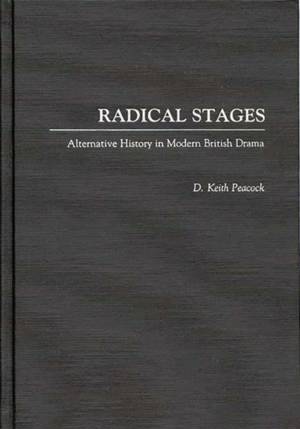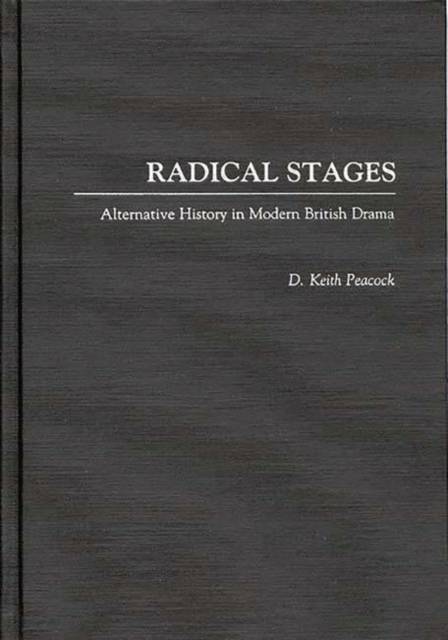
- Retrait gratuit dans votre magasin Club
- 7.000.000 titres dans notre catalogue
- Payer en toute sécurité
- Toujours un magasin près de chez vous
- Retrait gratuit dans votre magasin Club
- 7.000.000 titres dans notre catalogue
- Payer en toute sécurité
- Toujours un magasin près de chez vous
Description
This unique volume examines the evolution of British historical drama from the birth of modern British drama with John Osborne's Look Back in Anger in 1956 to the establishment of the right-wing government of Margaret Thatcher during the early 1980s. The book illustrates how the ruling group within a society establishes a cultural hegemony by which it perpetuates its values as society's norms. Radical Stages demonstrates how historical drama within the period increasingly was employed as a weapon in an assault upon this cultural hegemony.
First defining historical drama, Peacock differentiates the historical drama after 1956 from its predecessors as representing a shift from concern with individual psychology to an emphasis upon the socioeconomic context in which personality is formed. The first stage of this development, to 1968, was marked by a populist concern with ordinary people and by an absence of specific political propaganda. Following the defeat of student revolutionary movements in 1968, the gradual change in left-wing political inclination from anarchism to Marxism was treated in historical settings by such dramatists as Howard Brenton, Trevor Griffiths, Edward Bond, and David Edgar. Radical Stages analyzes these movements as reflected in drama and also considers the place of women in the revolutionary movements of the 1960s and in the British theatre and historical drama of the period. The final chapter speculates on the future of British historical drama in the wake of the fall of both the Thatcher government and communist governments in Eastern Europe.Spécifications
Parties prenantes
- Auteur(s) :
- Editeur:
Contenu
- Nombre de pages :
- 208
- Langue:
- Anglais
- Collection :
Caractéristiques
- EAN:
- 9780313278884
- Date de parution :
- 30-10-91
- Format:
- Livre relié
- Format numérique:
- Genaaid
- Dimensions :
- 152 mm x 229 mm
- Poids :
- 480 g







